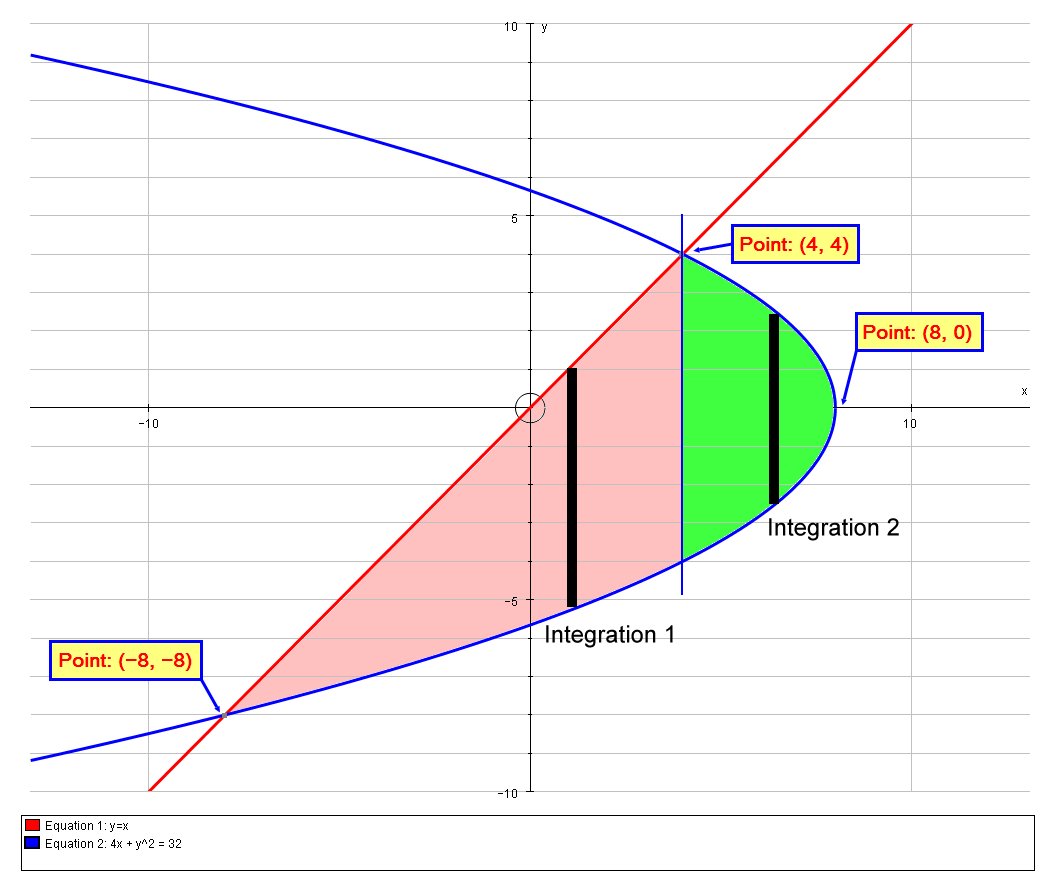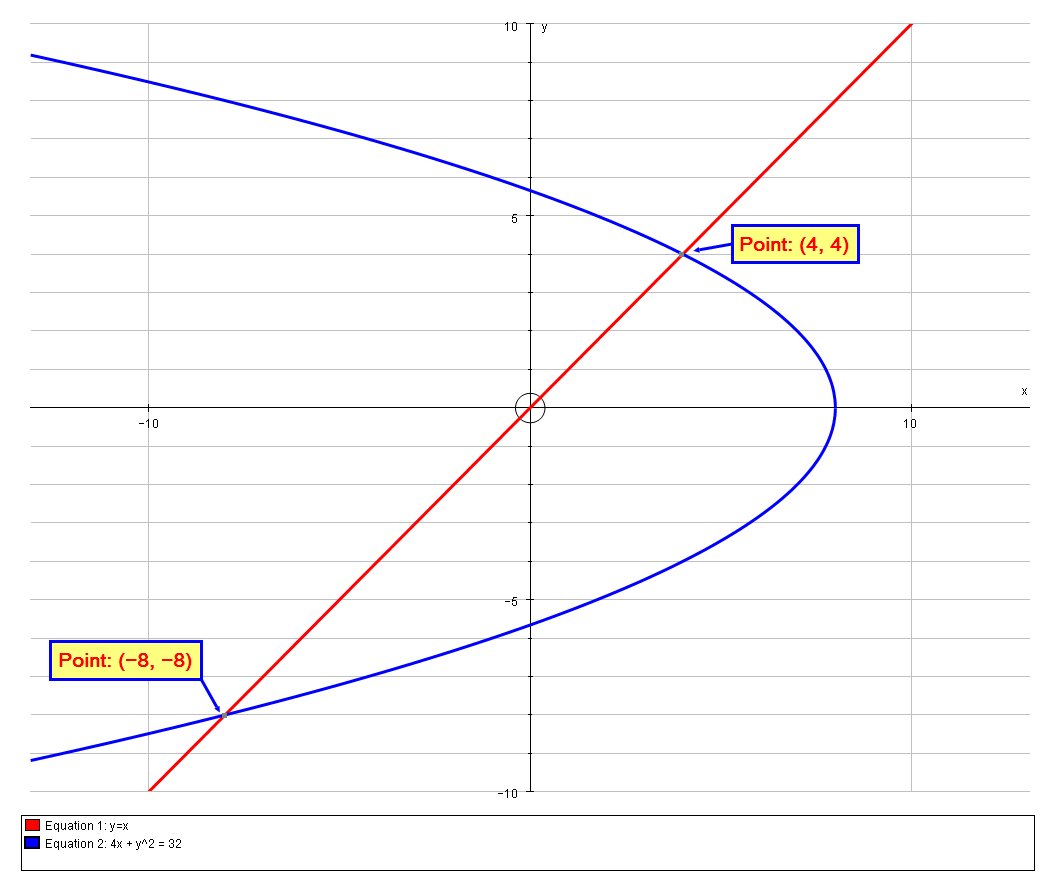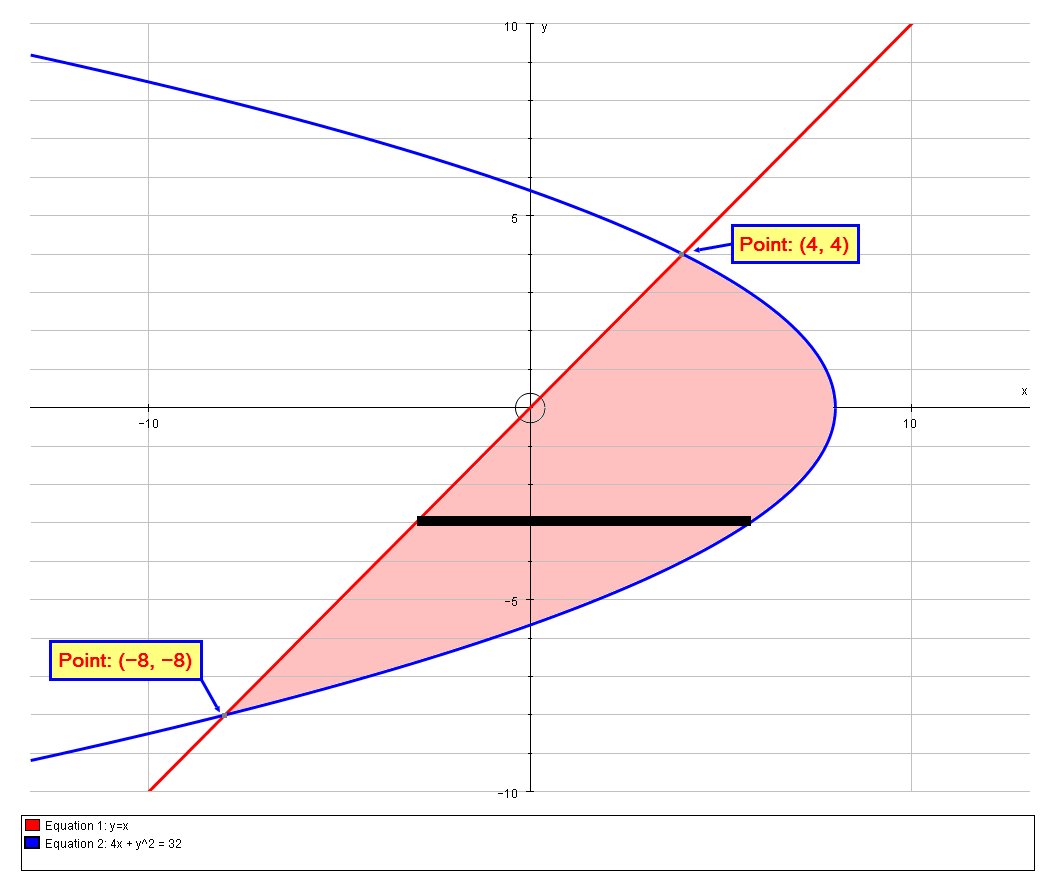What is the area bounded by the curves? : # 4x + y^2 = 32 # and # x=y #
1 Answer
We have:
# 4x + y^2 = 32 #
# x=y #
The graphs are as follows:
To find the coordinates of intersection:
# 4x + x^2 = 32 #
# :. (x-4)(x+8) = 0 #
# => x=4, -8#
So the intersection coordinates are:
# (-8,-8)# and#(4,4)#
We can calculate the bounded area (shaded) by integrating either wrt
Method 1: Integrating wrt
if we integrate with infinestimall thin horiozontal striops then we find the strips are bounded by
Thus, the area is given by:
# A = int_alpha^beta \ f(y) \ dy #
# \ \ \ = int_(y=-8)^(y=4) \ ( (32-y^2)/4 ) -(y) \ dy #
# \ \ \ = int_(-8)^(4) \ 8 - y^2/4 -y \ dy #
# \ \ \ = [ 8y - y^3/12 -y^2/2 ]_(-8)^(4) #
# \ \ \ = (32-16/3-8) - (-64+128/3-32) #
# \ \ \ = 56/3 - (-160/3) #
# \ \ \ = 72 #
Method 2: Integrating wrt
if we integrate with infinestimall thin vertical striops then we find the strips are bounded by
We also need to include a portion that is bounded by

Thus, the area is split into two seperate integrals:
# A = A_1 + A_2 #
Where:
# A_1 = int_(x=-8)^(x=4) (x)-(-sqrt(32-4x)) \ dx #
# A_2 =int_(x=4)^(x=8) \ (sqrt(32-4x) - (-sqrt(32-4x) ) \ dx #
First we calculate
# A_1 = int_(-8)^(4) x+sqrt(32-4x) \ dx #
# \ \ \ \ = [x^2/2 -(4(8-x)^(3/2))/3 ]_(-8)^(4) #
# \ \ \ \ = (8-32/3) - (32 - 256/3) #
# \ \ \ \ = (-8/3) - (-160/3) #
# \ \ \ \ = 152/3 #
Then,
# A_2 =int_(4)^(8) \ 2sqrt(32-4x) \ dx #
# \ \ \ \ = 2 int_(4)^(8) \ sqrt(32-4x) \ dx #
# \ \ \ \ = 2 [-(4(8-x)^(3/2))/3 ]_(4)^(8) #
# \ \ \ \ = 2 { (0) - (-32/3) } #
# \ \ \ \ = 64/3 #
So, the total area is:
# A = A_1 + A_2 #
# \ \ \ = 152/3 + 64/3 #
# \ \ \ = 72 #



